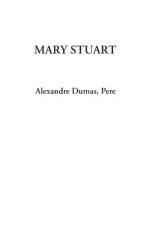The envoys returned to London, where they awaited the promised reply; but while they were expecting it unavailingly, they heard quietly the sentence of death given against Queen Mary, which decided them to return to Richmond to make fresh remonstrances to Queen Elizabeth. After two or three fruitless journeys, they were at last, December 15th, admitted for the second time to the royal presence.
The queen did not deny that the sentence had been pronounced, and as it was easy to see that she did not intend in this case to use her right of pardon, M. de Bellievre, judging that there was nothing to be done, asked for a safe-conduct to return to his king: Elizabeth promised it to him within two or three days.
On the following Tuesday, the 17th of the same month of December, Parliament as well as the chief lords of the realm were convoked at the Palace of Westminster, and there, in full court and before all, sentence of death was proclaimed and pronounced against Mary Stuart: then this same sentence, with great display and great solemnity, was read in the squares and at the cross-roads of London, whence it spread throughout the kingdom; and upon this proclamation the bells rang for twenty-four hours, while the strictest orders were given to each of the inhabitants to light bonfires in front of their houses, as is the custom in France on the Eve of St. John the Baptist.
Then, amid this sound of bells, by the light of these bonfires, M. de Bellievre, wishing to make a last effort, in order to have nothing with which to reproach himself, wrote the following letter to Queen Elizabeth:




